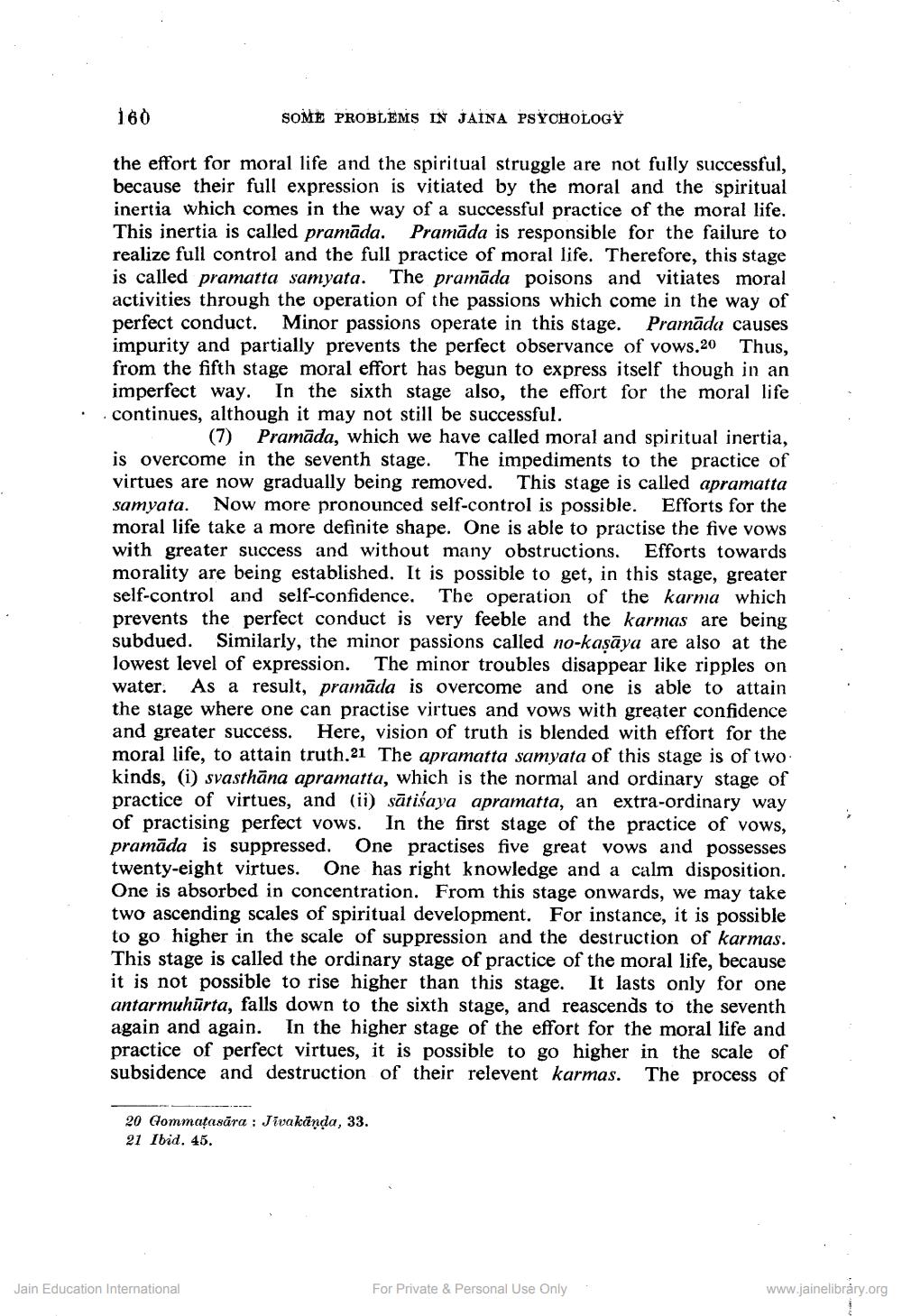________________
160
SOME PROBLEMS IN JAINA PSYCHOLOGY
the effort for moral life and the spiritual struggle are not fully successful, because their full expression is vitiated by the moral and the spiritual inertia which comes in the way of a successful practice of the moral life. This inertia is called pramāda. Pramāda is responsible for the failure to realize full control and the full practice of moral life. Therefore, this stage is called pramatta samyata. The pramāda poisons and vitiates moral activities through the operation of the passions which come in the way of perfect conduct. Minor passions operate in this stage. Pramāda causes impurity and partially prevents the perfect observance of vows.20 Thus, from the fifth stage moral effort has begun to express itself though in an imperfect way. In the sixth stage also, the effort for the moral life continues, although it may not still be successful.
(7) Pramāda, which we have called moral and spiritual inertia, is overcome in the seventh stage. The impediments to the practice of virtues are now gradually being removed. This stage is called apramatta samyata. Now more pronounced self-control is possible. Efforts for the moral life take a more definite shape. One is able to practise the five vows with greater success and without many obstructions. Efforts towards morality are being established. It is possible to get, in this stage, greater self-control and self-confidence. The operation of the karma which prevents the perfect conduct is very feeble and the karmas are being subdued. Similarly, the minor passions called no-kasāya are also at the lowest level of expression. The minor troubles disappear like ripples on water. As a result, pramāda is overcome and one is able to attain the stage where one can practise virtues and vows with greater confidence and greater success. Here, vision of truth is blended with effort for the moral life, to attain truth.21 The apramatta samyata of this stage is of two kinds, (i) svasthāna apramatta, which is the normal and ordinary stage of practice of virtues, and (ii) sātiśaya apramatta, an extra-ordinary way of practising perfect vows. In the first stage of the practice of vows, pramāda is suppressed. One practises five great vows and possesses twenty-eight virtues. One has right knowledge and a calm disposition. One is absorbed in concentration. From this stage onwards, we may take two ascending scales of spiritual development. For instance, it is possible to go higher in the scale of suppression and the destruction of karmas. This stage is called the ordinary stage of practice of the moral life, because it is not possible to rise higher than this stage. It lasts only for one antarmuhūrta, falls down to the sixth stage, and reascends to the seventh again and again. In the higher stage of the effort for the moral life and practice of perfect virtues, it is possible to go higher in the scale of subsidence and destruction of their relevent karmas. The process of
20 Gommațasāra : Jivakānda, 33. 21 Ibid. 45.
Jain Education International
For Private & Personal Use Only
www.jainelibrary.org




